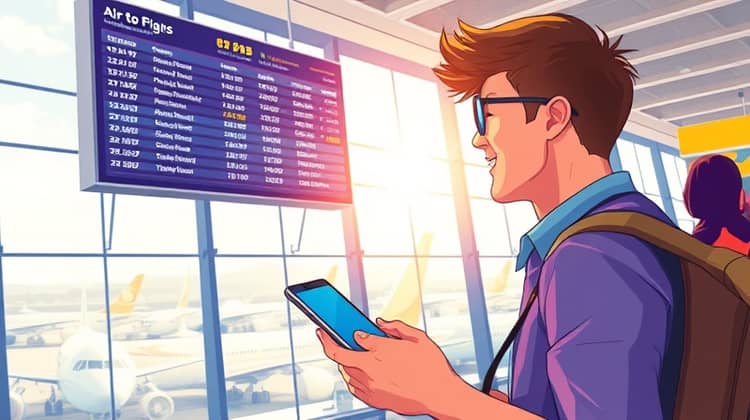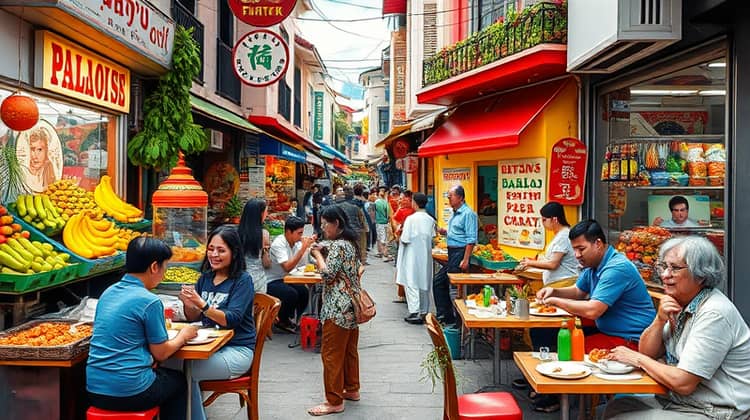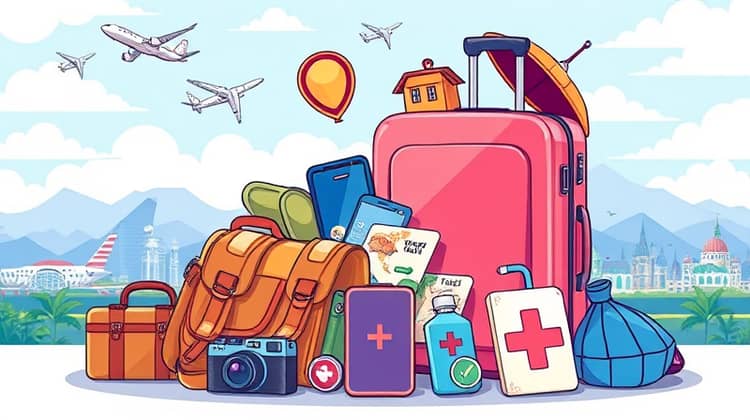Traveling can often feel prohibitively expensive, especially when you consider the rising costs of flights, accommodation, and food. However, with a bit of planning and some strategic decisions, you can explore the world without breaking the bank. Here are seven practical ways to travel on a budget that can help you save money while still having a memorable adventure.
By being resourceful and flexible in your travel approach, you’ll find that it’s entirely possible to visit exciting destinations without draining your wallet. Whether you are a solo traveler, a couple, or a family, these tips are tailored to apply to nearly any travel scenario. Let's dive into these strategies that can make your experience enjoyable while keeping your expenses low.
1. Be Flexible with Your Travel Dates

One of the most effective ways to save on travel costs is by being flexible with your travel dates. Many travelers do not realize that adjusting your departure and return dates by just a few days can result in significant savings on airfare and accommodation. For instance, flying mid-week rather than over the weekend is typically cheaper due to lower demand.
Additionally, you can benefit from fare alerts and comparison websites that show fare fluctuations over time. If you can wait to travel until off-peak seasons, or if you can take advantage of national holidays where tickets may be lower, you will see the financial benefits multiply. Taking the time to research and compare different dates can lead to an enjoyable trip that doesn’t drain your finances.
- Check airline fare comparison tools.
- Consider traveling during the shoulder season.
- Be open to last-minute deals to save more.
2. Book Flights in Advance

Booking your flights well in advance is another way to secure better prices on your airfare. Airlines often offer lower prices for tickets purchased months ahead, especially for popular routes that tend to fill up quickly. By planning your travel earlier, you can avoid the surge in prices that often occurs as the departure date approaches.
Additionally, many airlines have fare sales and promotions that occur regularly. Signing up for newsletters and alerts from airlines and travel websites can help you stay informed of discounts, allowing you to book at the most opportune time.
Moreover, consider using flight search engines to monitor historical price trends for your specific route so that you can identify the best time to buy.
3. Use Public Transportation

Using public transportation instead of taxis or rental cars can significantly cut down your travel expenses. Most cities have extensive public transportation networks, including buses, trains, and subways, which are not only more affordable but also give you a chance to experience the local culture more intimately.
Many public transport systems offer daily or weekly passes that can make hopping around the city even more cost-effective. Getting familiar with the local transit apps can provide real-time information to help navigate efficiently and can save you time and money as you explore.
- Use metro systems in urban areas.
- Consider bus passes for convenience.
- Check for tourist transit cards that offer discounts.
4. Stay in Budget Accommodations

Accommodation can take up a large portion of your travel budget, but there are plenty of affordable options available. From hostels to budget hotels, or even considering short-term rentals, you can find suitable places that offer decent comfort without costing a fortune.
Moreover, couch surfing and house-swapping services can provide free accommodation opportunities, connecting you with locals looking to share their space. Thrift and last-minute booking sites can also yield hidden gems at a fraction of the price.
- Hostels for shared or private rooms.
- Airbnb or vacation rentals.
- Couchsurfing for free stays.
When choosing your lodging, it’s also worth considering the location. Staying slightly outside of tourist hotspots can save money, but make sure you have easy access to public transportation to your desired activities. The more you save on accommodation, the more you can allocate to experiences during your travels!
Always read reviews and check ratings to ensure that while you’re saving money, you’re not compromising significantly on safety and cleanliness.
5. Eat Like a Local

Food costs can quickly add up, especially if you choose to dine at tourist traps that charge premium prices for mediocre food. Instead, look for local eateries, street food stalls, and markets where you can enjoy authentic cuisine for significantly less.
Eating where the locals eat not only caters to your taste buds but often provides a richer cultural experience. Local markets can also be an excellent place to grab snacks or picnic supplies to save money on meals without skipping the fun of trying new foods.
6. Plan Free and Low-Cost Activities

When traveling, it’s easy to feel pressured to spend on expensive attractions. However, many destinations offer a variety of free or low-cost activities that deliver unforgettable experiences without the hefty price tag. Research local events, festivals, and parks that highlight the culture and natural beauty of the area.
Taking advantage of walking tours can provide insight into the locality and enhance your appreciation of its history without costing a fortune. Museums might have discounted free openings on certain days, so keep an eye out for such opportunities.
7. Don’t Forget Travel Insurance

Many travelers overlook the importance of travel insurance when budgeting for a trip; however, it can save you thousands in unexpected situations. Whether it be a flight cancellation, medical emergencies, or lost luggage, having travel insurance can protect your investment and ensure peace of mind.
Investing a little bit in travel insurance can often repay itself immensely when unforeseen circumstances arise, minimizing the financial risks associated with travel. Make sure to compare different plans to find the one that offers you the best coverage for your specific needs.
Conclusion

Traveling on a budget doesn’t mean compromising on your experiences. By implementing these strategies, you can create a travel plan that allows you to explore more while spending less. Being resourceful, flexible, and willing to embrace local culture will enhance your adventures without exhausting your savings.
Ultimately, the key to successful budget travel is planning and awareness of your options. With these tips in mind, you are well on your way to uncovering new destinations and experiences that align with your financial goals, leaving you with cherished memories for years to come.














